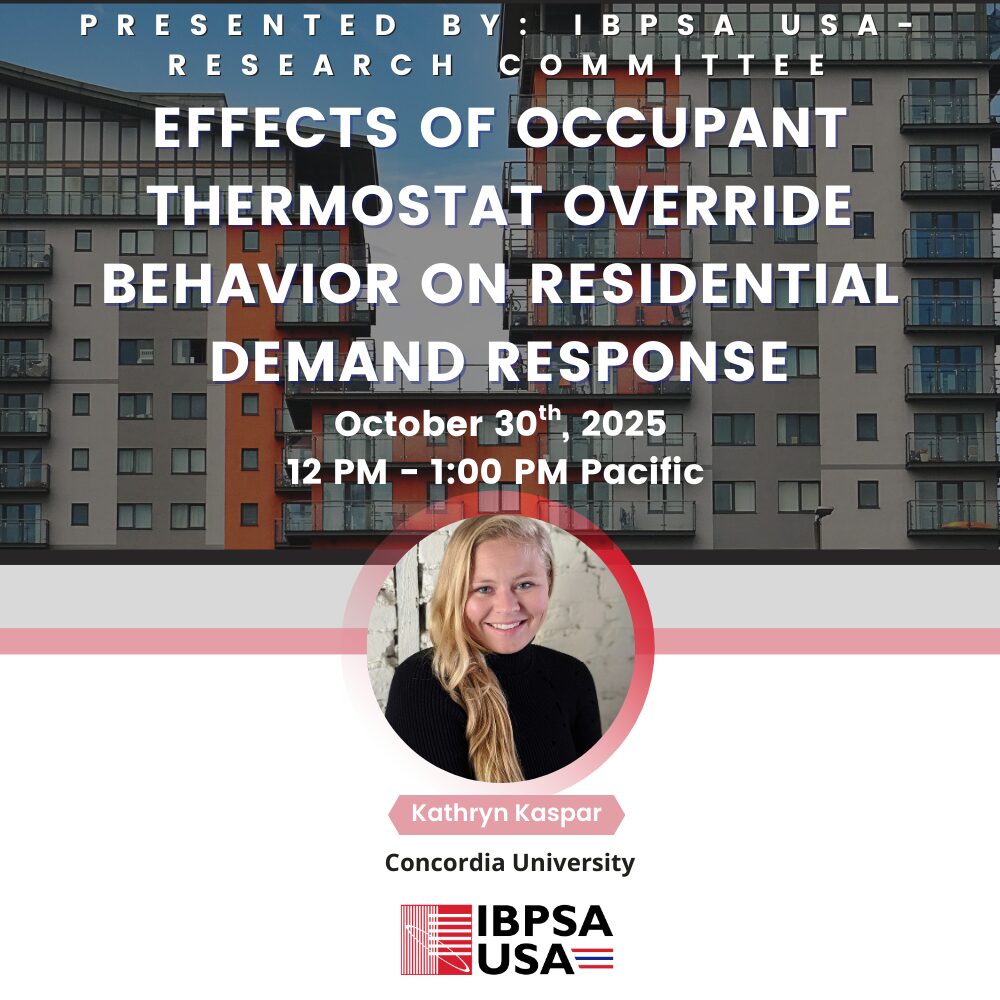
Effects of occupant thermostat override behavior on residential demand response
Building energy research commonly assumes occupants remain comfortable within a prescribed temperature range. While this assumption can be helpful for modeling, this approach could overestimate demand response potential in real-world applications. Using data from 701 Quebec households and reinforcement learning-based control in a 10-building neighborhood simulation, this research compares the energy flexibility services provided through the automated control when considering three different Levels-of-Detail (LoDs) for occupant modeling: a baseline scenario with static thermostat setpoints and no demand response (LoD 1), automated thermostat setbacks for demand response without allowing for overrides (LoD 2), and automated setbacks for demand response while allowing for occupant thermostat overrides (LoD 3).
In simulated winter demand response scenarios where thermostat setbacks are applied while occupants retain override capability (LoD 3), occupants overrode the setbacks during approximately 21% of the demand response events. However, even with realistic override modeling in LoD 3, a 17% reduction in electricity consumption was achieved during peak periods while maintaining occupant comfort—proving that effective demand response remains viable when occupant preferences are understood and accommodated.
In addition to testing the various LoDs, we modeled the thermostat setpoint preferences and override behaviors of both “Average” and “Tolerant” occupants in Quebec. By employing one reinforcement learning agent per household, each agent learned individual thermostat preferences and override behaviors, effectively shifting electricity consumption away from peak hours while maintaining indoor temperatures near occupant-specified setpoints.
This research demonstrates how individual household decisions scale to grid-level impact and offers practical insights for designing demand response programs that account for real occupant behavior. Given that space heating represents 54% of Quebec’s residential electricity consumption, aggregating residential buildings can provide substantial energy flexibility services to enhance grid stability. Understanding and modeling these behaviors isn’t just academically interesting; it’s essential for reliable grid-scale energy flexibility in our increasingly electrified future.

Kathryn Kaspar
Kathryn Kaspar is a Ph.D. Candidate of Building Engineering in the Department of Building, Civil, and Environmental Engineering at Concordia University, co-supervised by Dr. Mohamed Ouf and Dr. Ursula Eicker. She obtained her B.Eng. in Civil Engineering from McGill University before working on sustainable earthquake reconstruction projects in Nepal from 2015-2016. Upon returning to North America, she obtained her M.Sc. in Civil Engineering from the University of New Hampshire while working in energy planning and policy at the City of Cambridge, Massachusetts. Her research is focused on using multi-agent reinforcement learning for energy management at the neighborhood level, with the principal goal of balancing energy savings and occupant needs and comfort.
